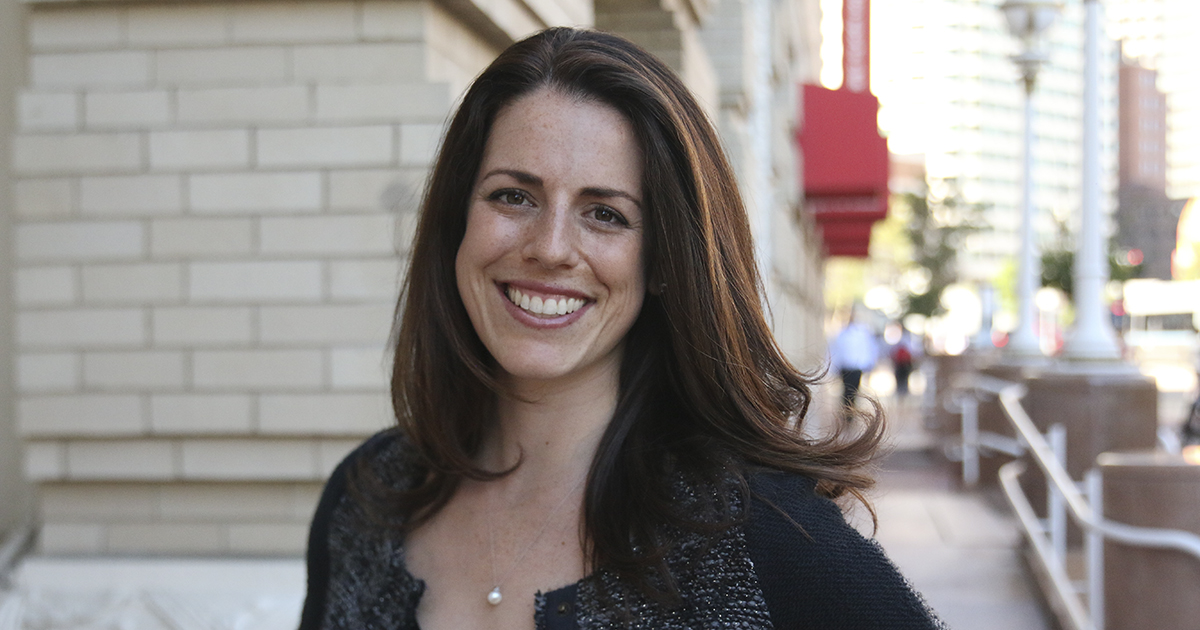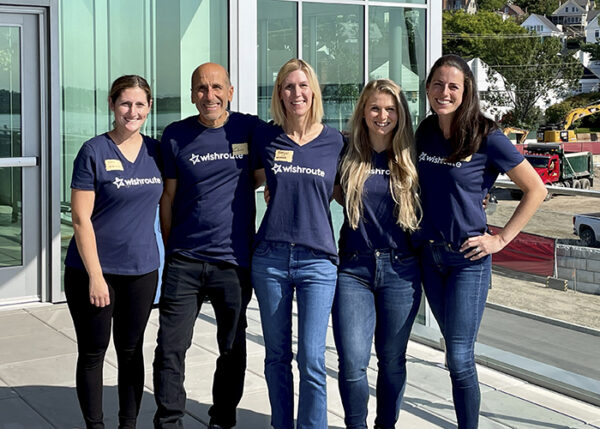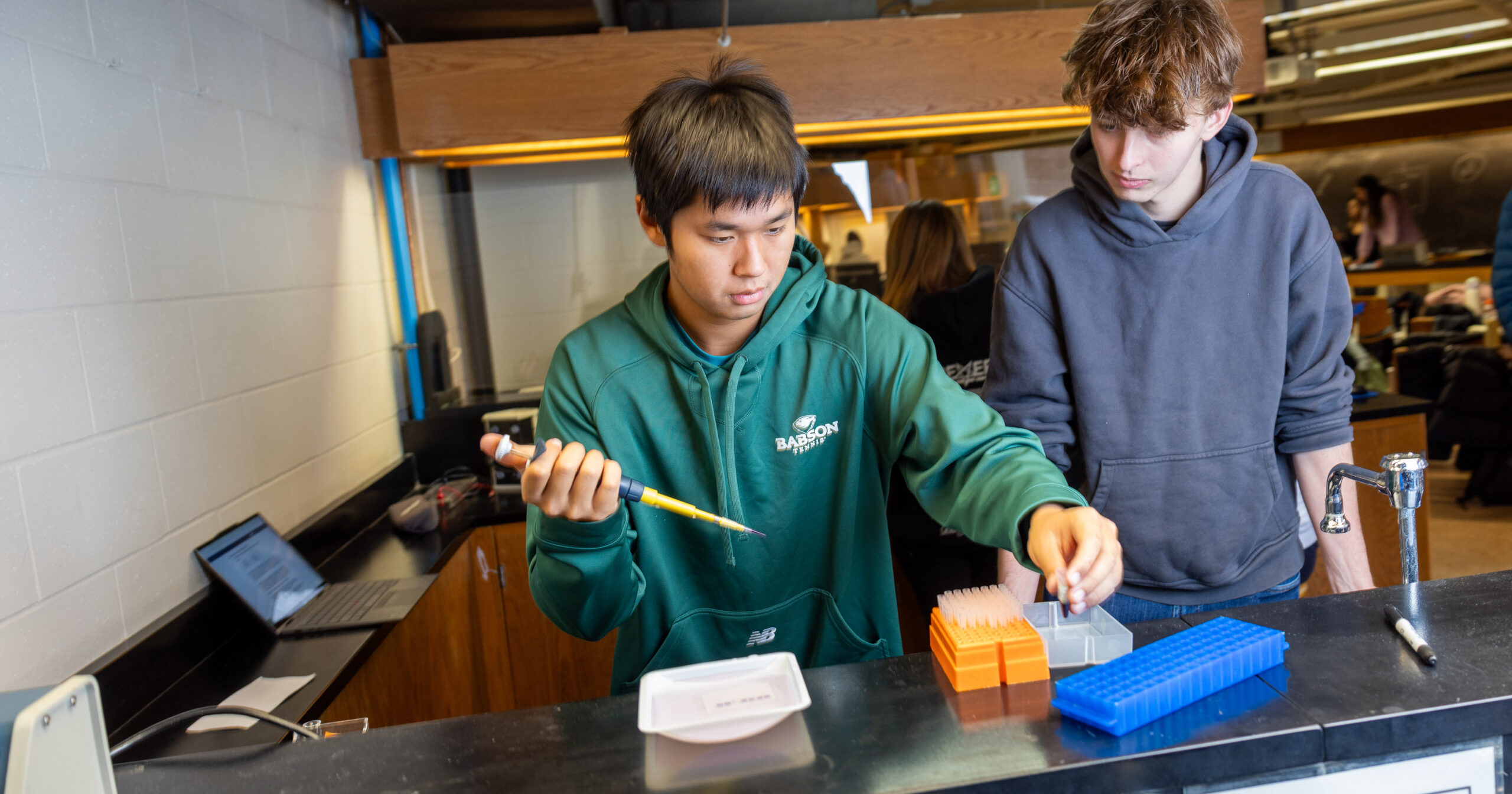When Should You Sell Your Startup?

When should a budding entrepreneur consider selling their carefully crafted venture?
No matter how much hustle, determination, and love a founder has invested in their small business, the answer is immediately, according to Jessica Lynch ’13, MS’13, MBA’18. Lynch recently sold her company, Wishroute, a wellness and health coaching venture she started while earning her master’s degree at Babson.
“I would advise entrepreneurs to start building relationships with potential acquirers as early as they can,” Lynch said. When she began seeking buyers for Wishroute last year, she plundered the depths of her contacts and quickly learned how important prior connections became.
“Any of the companies that I had even one LinkedIn message exchange with, or if I had one email thread with their CEO or I’d met them for coffee three years ago, the conversation when I called them to see if they were interested in partnering or buying went so much further,” Lynch said. “It’s because there’s already a bond, and they’re invested in what you’ve built. If you are a known entity to them, you’re in a much better position.”
Lynch announced the sale of Wishroute to Suggestic, a company that provides an array of tele-wellness solutions, in May. She also licensed Wishroute’s IP to Guidely and Runzy.
Lynch founded Wishroute in 2018, it works with wellness companies to offer healthy coaching through texts. Shortly after she launched her company, she pushed to accelerate it through Babson’s Summer Venture Program, leaning on Babson faculty for advice and hiring more than 15 Babson students as interns over the past five years.
“I could not have done this without the support of everyone at Babson,” Lynch said. “It’s really been a phenomenal experience.”
Tough Decision, Tough Process
Not only is a founder’s decision to sell their business difficult—especially one that managed to beat the slim entrepreneurial odds—but the process of selling also is hard, Babson College Adjunct Lecturer John Hallal said. Hallal, whose focus is on mergers and acquisitions, said the reasons founders sell vary widely.
“It really depends on the desires and motivation of the business owner. Are they bored with the business? Do they have more of a passion for starting businesses than growing them,” Hallal said. He listed other reasons, including retirement, disagreements with a co-founder, or a life-changing health issue or simply to cash out. “Sometimes, an entrepreneur wants to transition to a traditional job. Sometimes, they’ll leave to join their family’s business, which happens with some Babson students.”

Jessica Lynch ’13, MS’13, MBA’18 (right) and her staff at Wishroute.
In the case of Wishroute, economic challenges played a big role.
“We went through a lot of different iterations and experiments and business models, and we hit two really challenging moments,” Lynch said. “They were mostly due to market dynamics changing.”
The first challenging moment came when the gyms and personal trainers that made up Wishroute’s customer base at the time closed shop during the pandemic.
“It was a pivotal moment,” Lynch said. Not wanting to let down her investors and other stakeholders, Lynch said she looked inside to decide on her next move.
“I had an inner knowing that there was something just on the other side, and I had to push through this,” Lynch said. She shifted Wishroute toward an app-based coaching system that could help clients stay engaged in their wellness goals. “We came out stronger and on a whole new trajectory that had even bigger potential.”
But, fears of a recession, combined with layoffs in the technology industry in spring 2022, meant early-stage investments dried up.
“I had to look at myself in the mirror again and figure out how much conviction I had that we could pull through this based on all the learnings up until that point,” Lynch said. She ultimately decided to sell, hoping to recoup money for her investors and maintain jobs for her employees.
A Clean Start
The average merger or acquisition can take six months to a year, from start to finish, Hallal said. The success of that process often depends on how well the founder set up the new venture and its financial hygiene.
Classifying the venture as the right corporate entity, while documenting deals with shareholders and co-founders, making sure the business has the right accounting setup and tax structure, are all important when creating a venture.
“When you go to sell a business, if you’ve made mistakes in terms of structure, they can be very costly to you, and they can also have an impact on the valuation of the business,” Hallal said. “So, getting things off on the right foot, it’s really important.”
“I would advise entrepreneurs to start building relationships with potential acquirers as early as they can.”
Jessica Lynch ’13, MS’13, MBA’18
Other potential mistakes once the merger or acquisition process is underway include letting employees know about the sale too early or allowing their day-to-day business operations or customer service to slide during the process, said Hallal.
Lynch admits the process was a steep learning curve, but the triple Babson degree recipient didn’t let that stop her.
“I kicked off a mergers and acquisition process and pitched 60 companies, and I ended up coordinating a deal between three startups,” Lynch said. “Once I negotiated a deal between the three, I was able to distribute some funds back to investors.”
And, even though the sale involved some tough lessons, Lynch has never been one to let an opportunity pass her by. She’s currently helping guide fellow entrepreneurs through the complex and expensive mergers and acquisitions process.
“I figured out how to do it myself, and I created a process,” Lynch said. “Now, I actually help advise founders who are trying to sell their companies through a similar process so that they can learn from what I put together.”
Click the link to learn more tips about how to sell your startup business with additional examples from Babson College alumni and students!




